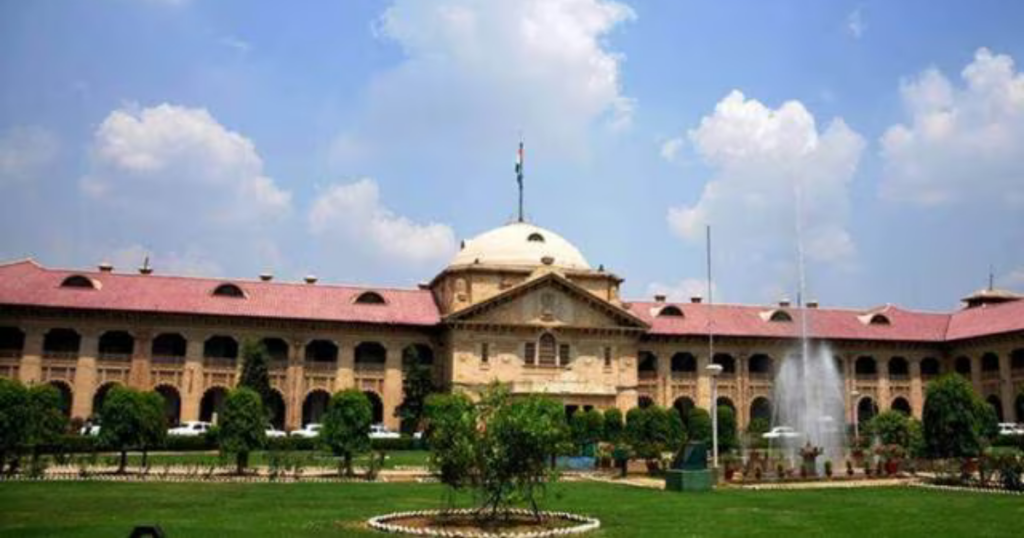Allahabad HC backs UP school pairing under NEP 2020, ruling no violation of children’s education rights. Petition by 50+ students dismissed.
In a significant decision reinforcing education reform under the National Education Policy (NEP) 2020, the Allahabad High Court has upheld the Uttar Pradesh government’s school pairing policy, ruling that the move does not infringe upon children’s fundamental right to education.
The judgment, delivered on July 7, 2025, by Justice Pankaj Bhatia, came in response to two writ petitions filed by more than 50 students from Gautam Buddha Nagar district. The students, represented by their parents and guardians, had challenged the government’s order dated June 16, 2025, and a follow-up communication issued on June 24. Their core concern: the merger of 105 government-run primary and upper primary schools, which they argued would violate the Right to Education (RTE) Act and the constitutional guarantee under Article 21-A.
Parents’ Concerns Over Access and Distance
The petitioners claimed that the new policy would force young children to walk more than one kilometre to school, exceeding the limit set under Rule 4 of the UP RTE Rules, 2011. They feared that the pairing policy would effectively result in the closure of schools in smaller villages, cutting children off from accessible, neighborhood education.
Arguing on behalf of the petitioners, Dr. L.P. Mishra highlighted that Section 6 of the RTE Act mandates neighborhood schools, and Rule 4(a) of the state RTE rules obligates the government to set up a school in any habitation that lacks one within a kilometre, provided the local population exceeds 300.
Another counsel, Advocate Gaurav Mehrotra, contended that the state’s orders were mere executive instructions—not formal legislation—and therefore could not override fundamental rights protected under the Constitution.
State’s Stand: Rationalization, Not Closure
Representing the Uttar Pradesh government, Additional Advocate General Anuj Kudesia defended the policy as a strategic move to better utilize limited resources. He informed the court that 58 schools had zero enrollment, and many others were functioning with extremely low student numbers, leading to poor pupil-teacher ratios and underutilized infrastructure.
“This isn’t about shutting down schools,” Kudesia clarified. “It’s a rational restructuring exercise to enhance the quality and delivery of education, fully in line with NEP 2020.”
He also emphasized that the state remains committed to providing free and compulsory education and has the authority under the Rules of Business to implement such a policy through the Additional Chief Secretary.
Court’s Observations and Final Verdict
In its detailed ruling, the court dismissed the argument that the pairing policy was arbitrary or violated children’s rights. Justice Bhatia pointed out that the NEP 2020 specifically recommends the consolidation of small schools that are financially unsustainable and administratively difficult to manage.
The court also noted that Rule 4(2) of the UP RTE Rules allows flexibility in distance norms if transportation or other support systems are provided. Thus, merging schools—even if it means children walk further—is permissible as long as the state ensures access through proper facilities.
Additionally, the court found that the petitioners failed to show concrete evidence that the policy would harm students or deny them their right to education. It also dismissed the argument that every 300-person village must have its own school, calling it an impractical interpretation that would require building over 8 lakh schools across the state—an unfeasible demand given UP’s population of over 24 crore.
In conclusion, the court stated that there was no violation of the Right to Education and that the pairing policy was within the framework of law and educational reform.
However, in a strong directive to the administration, the court said:
“It will be the duty of the Basic Shiksha Adhikari to ensure that no child is left behind, and all necessary steps must be taken to support their continued education in accordance with law.”
With this ruling, the High Court has cleared the way for the state’s school rationalization efforts, marking a significant milestone in implementing NEP 2020 in Uttar Pradesh.

Despite petitions from parents, the court ruled there’s no violation of children’s Right to Education.
Also Read: Delhi University Launches Sikh Martyrdom and Radio Jockey Courses in New Academic Reforms –
NCERT collaborates with Canva to launch new certification program for teachers